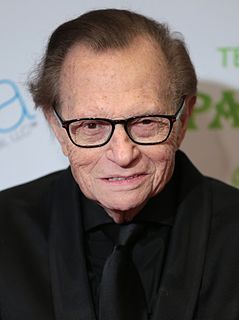A Quote by Barbara Kopple
We never really know what's around the corner when we're filming - what turn a story will take, what a character will do or say to surprise us, how the events in the world will impact our story.
Related Quotes
A lot of people think that they are really cool because they don't outline. In my writing group, they would say, "I will never outline. I let the characters take me." C'mon, man - I outline the story, but it's only like one page. It's a list of possible reversals in the story, like things where everything will just change because of this certain reveal or this certain action. Then I start really digging into the character because, to me, I don't care what the story is.
A thin line separates laughter and pain, comedy and tragedy, humor and hurt. Our lives constantly walk that line. When we slip off on one side or the other, we're taken by surprise. But who said there wouldn't be surprises? Knowing God just means that all the rules will be fair; at the end of our life drama, we'll see that. We never know how things will turn out, but if we know with certainty they will make sense regardless of how they turn out, we're on to something.
We are all refugees from our childhoods. And so we turn, among other things, to stories. To write a story, to read a story, is to be a refugee from the state of refugees. Writers and readers seek a solution to the problem that time passes, that those who have gone are gone and those who will go, which is to say every one of us, will go. For there was a moment when anything was possible. And there will be a moment when nothing is possible. But in between we can create.
The story is the only thing that's important. Everything else will take care of itself. It's like what bowlers say. You hear writers talk about character or theme or mood or mode or tense or person. But bowlers say, if you make the spares, the strikes will take care of themselves. If you can tell a story, everything else becomes possible. But without story, nothing is possible, because nobody wants to hear about your sensitive characters if there's nothing happening in the story. And the same is true with mood. Story is the only thing that's important.
Around every corner is another gift waiting to surprise us, and it will surprise us if we can achieve control over our natural tendencies to make comparisons [to things that are better rather than things that are worse], to take things for granted [rather than imagining how much worse things would be if they weren't there and so feeling grateful], and to feel entitled!
The Work always leaves you with less of a story.
Who would you be without your story?
You never know until you inquire.
There is no story that is you or that leads to you.
Every story leads away from you.
Turn it around; undo it.
You are what exists before all stories.
You are what remains when the story is understood.
...you must say words, as long as there are any, until they find me, until they say me, strange pain, strange sin, you must go on, perhaps it's done already, perhaps they have said me already, perhaps they have carried me to the threshold of my story, before the door that opens on my story, that would surprise me, if it opens, it will be I, it will be the silence, where I am, I don't know, I'll never know, in the silence you don't know, you must go on, I can't go on, I'll go on
We who make stories know that we tell lies for a living. But they are good lies that say true things, and we owe it to our readers to build them as best we can. Because somewhere out there is someone who needs that story. Someone who will grow up with a different landscape, who without that story will be a different person. And who with that story may have hope, or wisdom, or kindness, or comfort. And that is why we write.






































